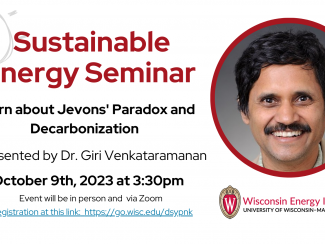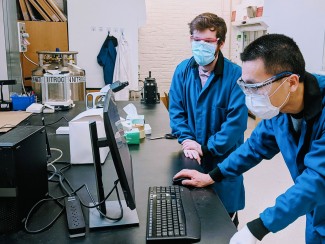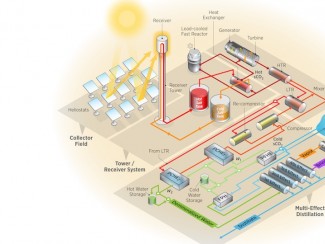With a newly awarded $3 million Department of Energy research grant, University of Wisconsin-Madison Distinguished Professor of Engineering Physics and Wisconsin Energy Institute Director Michael Corradini will lead a collaborative effort to improve real-time testing and instrumentation for transient nuclear reactor experiments.
With improved testing and data, we can improve safety.
Mike Corradini
The research group combines the nuclear engineering and experimental expertise of four universities, a leading national laboratory and an international partner. Dr. George Imel, Idaho State University, Dr. Phil Ugorowski, Kansas State University, Dr. Tom Blue, Ohio State University, Dr. Joy Rempe, Idaho National Laboratory and Dr. Jean-Francois Villard, CEA-Cadarache, join the UW-Madison led effort.
Transient testing, or short-interval testing, of nuclear fuel involves placing the fuel rod material into the central region of a test reactor core. These reactors are capable of simulating a wide range of transient behavior that simulate accident conditions requiring the reactor to produce short bursts of intense, high-power neutron flux and gamma radiation. Such experiments provide researchers with useful data about fuel behavior under conditions that nuclear facilities must be built to tolerate. These experimentation facilities allow new fuel designs or new materials to be tested under prototypic conditions that help ensure acceptable performance and safety. Researchers are able to learn how the materials will respond to accident conditions in highly controlled, short-interval tests.
With improved instrumentation and real-time data collection, the research team will help maximize the value of such transient testing. Their work will help improve the accuracy and resolution of the data collected during experiments to give researchers a better understanding of fuel behavior and material response during transients or brief changes in reactor conditions.
This work:
- Provides experimentation validation for research that increasingly relies on modeling and simulation
- Aids in the development of new fuels that can be used in existing and future nuclear reactor designs
- Develops and tests the safety of new materials under simulated accident conditions for improved performance and safety
"With this grant award our team will be able to develop new instruments that can make more precise measurements in space and time of key fuel material properties like thermal conductivity, key parameters like temperature as well as the local reactor power under transient conditions,” said Professor Corradini. “And with improved testing and data, we can improve safety.”




